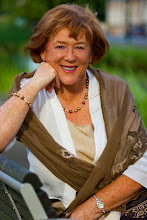I nodded and knew that when she had read the aforementioned books she was probably about ten years of age. This is just another terrifying indicator that Time is driving on a Formula One track in a Ferrari F12.
The books we read as children are always fondly remembered. We list off the titles at the drop of a hat: Famous Five, Just William, The Borrowers, The Lion The Witch and the Wardrobe, Little Women, The Witches and so on.
As a child I loved reading and that was the reason I decided my first books would be written for children. I hoped my imagination - and what it created - would become a memory that they could carry into adulthood.
As a child I loved reading and that was the reason I decided my first books would be written for children. I hoped my imagination - and what it created - would become a memory that they could carry into adulthood.
J.K Rowling can claim much credit for lifting children's literature from the 'pat on the head' attitude of adults towards the genre. But when I started to write for children I was regularly asked, "When are you ever going to write a real book?" The adults asking this question always remained blissfully unaware of the grinding noise my teeth made and the smoke billowing from my ears.
If you are the author reading at such events if helps if your childhood gene has not been totally eroded and you are gifted with the skills of a hypnotist, a clown and a benign dictator.
On one occasion I was invited to do a reading in a book shop. The performer before me was a magician who magicked rabbits from thin air then vanished them into his folds of his cloak. He fluttered doves from his fingers then buried them in the depths of his hat. I knew he was going to be a hard act to follow and my misgivings were justified when he ended his act and his entire audience disappeared before I'd even opened the first page.
That humbling experience was only a prelude to an ultimate humiliation that occurred when I was invited to a major bookshop to do a reading. This was a major celebration for the bookshop and it was filled with face painters, actors in animal drag, authors and children. When I tell you that facing a pride of hungry lions is easier than facing a gaggle of kids high as kites on E's (of the additive variety) I do not lie. By the time I arrived they had indulged in Curly Wurlys, lollipops, crisps and coke (of the drinking variety).
Knowing what I was up against I fixed them with my most hypnotic stare (think Derren Brown on a roll) and proceeded to read from When The Luvenders Came to Merrick Town.
They arranged themselves in a circle at my feet and off we went on a fantasy adventure. All was going well until a staff member appeared with a handful of masks. For some reason they were Pharaoh and Cleopatra masks, very dramatic, lots of gold and glitter, elaborate headdresses and eye-liner.
They arranged themselves in a circle at my feet and off we went on a fantasy adventure. All was going well until a staff member appeared with a handful of masks. For some reason they were Pharaoh and Cleopatra masks, very dramatic, lots of gold and glitter, elaborate headdresses and eye-liner.
The children on the outer circle dived on them. The inner circle, demanding a piece of the action, scrambled over the bodies in the outer circle and screamed, "Me! Me! Me!" Within thirty seconds I'd lost my audience. Even Derren Brown would not have succeeded in bringing them back to sanity.
Disconsolately, I wandered through the ranks of hysterical Egyptians and decided to quit while I was ahead. There was probably an asp in their midst, waiting to strike at my shattered ego.
A woman approached me with two small children.
"Please don't tell me you've finished your session," she begged.
I admitted that it had ended slightly earlier than anticipated and watched her eyes fill with disappointment.
"But my children are your greatest fans," she said. "For weeks they've been looking forward to meeting you. They were up at the crack of dawn this morning demanding to know when we were leaving."
My broken ego lifted its head slightly. "I'd hate to disappoint them," I said. "I'll ask the manager if I can do another reading especially for them."
"Would you?" she beamed. "It would make their day."
I looked around to see my fans but all I saw were Pharaohs chasing screaming Cleopatras.
"Where are they?" I asked.
"Here they are." She pushed the two toddlers forward. They removed their soothers and stared at me in abject misery. When it comes to fan awareness, children are always one step ahead of their parents.
"But they're so young," I said. "The Luvenders are very frightening creatures, very evil and capable of causing nightmares. My target audience is nine to twelve."
"Luvenders!" Their mother drew back in shock and shook her head. "Never heard of them. Are you not Thomas the Tank Engine?"




